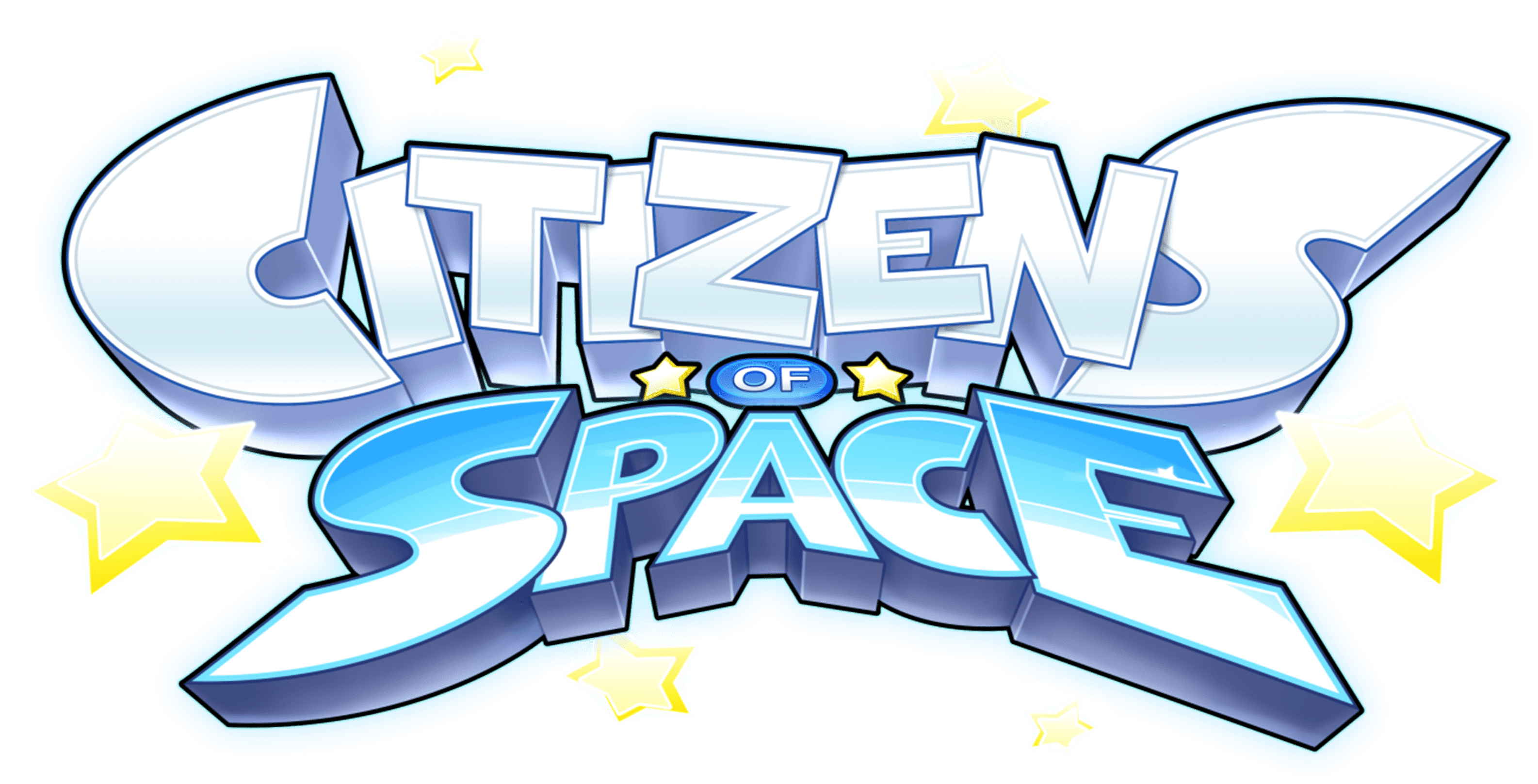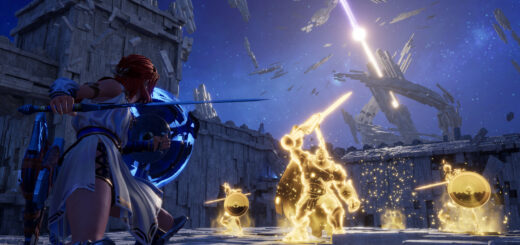Citizens of Space Review
I Didn’t Know Just How Many Ways There Were to be Annoying
In many ways, Citizens of Space is an ambitious game. It offers an unconventional story, a combat system full of options, and a wide array of game systems with which to engage. Unfortunately, most of what it offers is either shallow, tedious, or both. Add to that the technical issues that range from minor to game-breaking, and the overall experience is squarely mediocre.
Citizens of Space has players take on the role of Earth’s Ambassador to the Galactic Federation. During his inauguration to the Galactic Assembly, he discovers that the Earth has gone missing. This kicks off the adventure, as Ambassador must find a way to procure a spaceship and find where the Earth has gone.
There’s not much more to the story than this, and the whole adventure involves going to different planets, solving local problems, and being rewarded with a piece of the Earth. The local stories, like the main narrative, aren’t particularly deep or interesting, and generally involve just one simple task that serves as an excuse to go into the next dungeon. On top of the non-existent story — or maybe because of it — pacing is atrocious, with very weak reasons to drive extended dungeon dives with only short breaks between, and quests plagued with moving goal post objectives that unnecessarily prolong their completion. The non-linear exploration that allows players to go after whichever pieces of Earth they choose is really the only saving grace here, but it’s nowhere near enough to keep them engaged.
The characters that Ambassador meets and recruits during these excursions have no depth and there is no character development to speak of. All of them are one-note clichés and caricatures that quickly wear out their welcome after their first few lines of dialogue. Many of them are either sarcastic or have attitude problems. The narrative and text add absolutely nothing beyond what is already in the quest journal checklist, with the exception of the game’s attempts at humor which mostly fail on account of being overly reliant on characters’ one-dimensional interactions, and come off as lazy and expected. The consistency with which the game’s story and characters stick to being absolutely superficial is actually quite impressive, if ultimately annoying.
Combat is perhaps the best aspect of Citizens of Space. The combat system plays out similar to Super Mario RPG and other games that feature mini-games and timed button presses to boost attacks and defense. There’s a large variety of mini-games, some of which failed to make any sense even after over forty hours of gameplay, but the vast majority are intuitive and not overly difficult. Despite this, the mini-games often require several seconds to execute and can prolong combat, making it feel like a slog. It’s unfortunate that random encounters can take so long on account of the mini-games, but eventually this is partly mitigated by unlocking the ability to reduce encounter rates significantly.
Although combat starts out bland early on in the game, it becomes far more interesting as skills and characters are unlocked. There are a total of twelve characters who can occupy one of three battle slots and take part in combat, and players can swap characters in and out of those slots mid-battle. Abilities are based around energy. Characters can use abilities with weaker effects that build up energy, and use that energy to fire off more powerful abilities in subsequent turns. Energy can also be gained or lost by using attacks enemies are weak or resistant to, so players must be careful about which abilities they use. Each character has a variety of different skills that exploit enemy weaknesses, apply status effects, or buff and heal players. Characters also have very unique play styles. For example, some have abilities that trigger attacks when other party members are hit. Others can copy status effects between players and enemies. Yet other characters use stances to adapt to the battle situation, which enable different abilities to be used. Characters may specialize in high single-target damage, area-of-effect damage, or a mix of both. Combat characters can also ‘equip’ one of the partner characters, whose abilities they can then use in battle, allowing further customization. What characters lack in personalities they make up in combat, and there’s really a large variety of options in how players can choose to approach each battle.
Although Ambassador doesn’t fight directly, he is able to interrupt combat at any time by expending some of his charisma to use items or enact policies, abilities with combat-wide effects like reducing or increasing damage dealt by both enemies and players, or modifying the duration of status effects. There is a truly impressive repertoire of tools at players’ disposal. The incredible variety of play styles and abilities, coupled with the charisma system and the option to swap characters at any time, make the late-game combat refreshingly fun. Unfortunately it takes a long while and a lot of work recruiting characters to get to that point. And even then, the lengthy battles full of mini-games coupled with high encounter rates — which can only be reduced to the lowest rate for each dungeon after fighting may battles in that dungeon — create a sense of dread every time the random battle indicator shows that an encounter is about to occur.
In terms of presentation, Citizens of Space is at best forgettable and at worst annoying. The graphics, while polished, clean, and vivid, lack contrast, lighting effects, and other visual treats present in modern 2D games. This leads to a very flat visual experience. And while there are a handful of creative planets — including a planet that is simultaneously freezing cold and burning hot, or a Western-themed colony on the moon complete with farms, cows, and a gun-slinging robo-sheriff with a cowboy hat — most cities and areas are largely uninspired, lack character, and at the same time reuse assets to a fault. This includes the same exact architecture, shops, and even the same NPCs running each shop regardless of where in the galaxy a planet is located.
The music is only a tad better, with a number of enjoyable tracks mixed in with less memorable ones. Overall, the soundtrack lacks variety as a result of the game’s one-note mood and lack of narrative depth. Voice acting is of high technical quality, though it’s done in a type of children’s cartoon tone that becomes grating over the course of a long game. And not only does almost every character have a one-dimensional personality with dialogue made entirely of cliché phrases and bad humor, but the way each is voiced doubles down on their respective stereotypes. Despite the technical quality, listening to characters talk becomes annoying quickly.
While the presentation in Citizens of Space may be weak, the game shines when it comes to the variety of game systems at play. In addition to the main quest, there are numerous things to do including collecting minor pieces of Earth to unlock abilities, a variety of side quests, and finding and recruiting up to 40 characters. Recruited characters in turn give access to yet more game systems including a bounty system, a galaxy-wide game of hide-and-seek, the ability to engage in battles with any combination of defeated enemies, a quiz game — the list goes on. Combat also features a couple of different subsystems available after a victory, including the ability to continue on to more difficult combat rounds for increasingly greater rewards, or the ability to wager any of the combat rewards in casino-type games. Unfortunately the game is also plagued by numerous bugs, ranging from irksome slowdowns and crashes to more serious soft-locks that can break a playthrough.
Citizens of Space is an ambitious game in many ways that delivers an incredible variety of systems both in and out of combat to occupy players. To be sure, the game oozes with creativity at nearly every turn. But it takes a risk in going with a story focused primarily on humor, which unfortunately doesn’t pay off, and is instead overburdened with mostly predictable punchlines and tired, overused phrases. The end result leaves the game without much of a narrative, characters with flat personalities, fights that can drag on for a little too long, and lackluster presentation throughout.


Large variety of combat options
Numerous combat and non-combat characters to recruit
Many things to do and game systems to play with
Poor, mostly non-existent narrative, with horrific pacing
An impressively annoying and undeveloped cast
Trash encounters take too long due to mini-games











Recent Comments